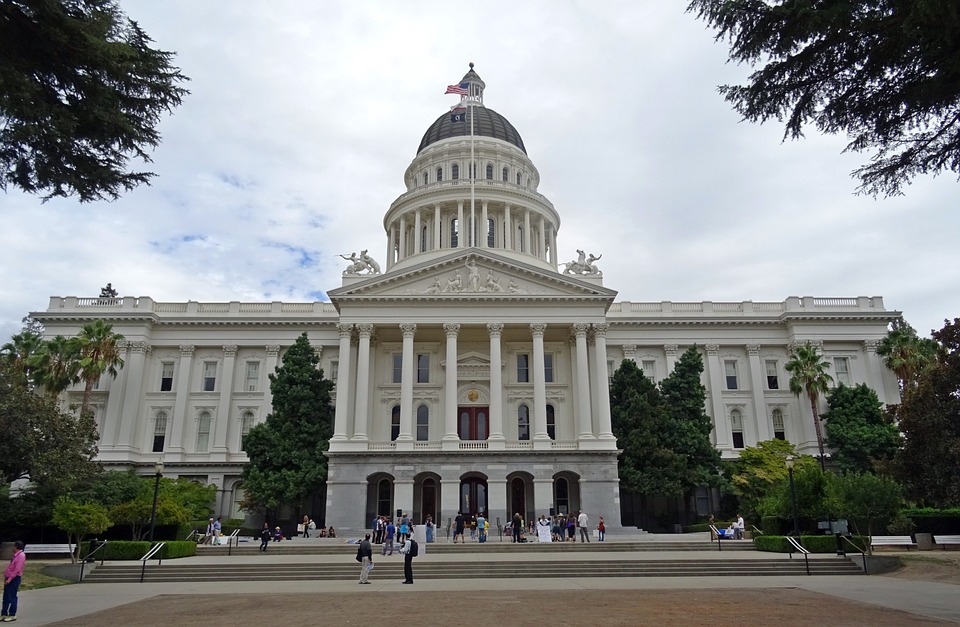Sacramento County Property Tax

There are many things to consider when buying property in California. One important factor to consider is the property tax that will be due. Generally, the amount of property tax you owe depends on the location. Here are a few important things to know about property taxes in Sacramento County.
6 Things Investors and Homeowners Need to Know About Sacramento County Property Taxes
- How Property Taxes Are Calculated
- Property Tax Rates
- When Property Taxes Are Due
- Property Tax Penalties
- How to Pay Property Taxes
- How to Lower Property Tax Liability
While Sacramento County is not the largest county in California, it proudly hosts the state’s capital, Sacramento. The county is 994 square miles and has a population of over 1.5 million. Almost half the residents live in unincorporated areas. Over 490,000 live in Sacramento, one of the incorporated cities. Other incorporated cities include Citrus Heights, Elk Grove, Folsom, Galt, Isleton, and Rancho Cordova. Sacramento County has over 504,653 parcels of land with an assessment property tax roll value of $160 billion after deductions and exemptions. Almost half of the property tax revenues collected by the Sacramento County Treasurer go to fund schools every tax year.
1. How Property Taxes Are Calculated
Property taxes are annual taxes in California comprised of three main components. First, there is the statewide general tax levy of 1% of property value. Second, there are voter-approved debt bonds, which are used to fund public repairs or other projects. Third, a direct assessment of fixed amount may be applied instead of a tax rate applied to property value.
The general tax levy was put in place through Article XIII A, known as Proposition 13. This levy limits the tax rate to 1% across the state and also sets a 2% limit on how much the value of property can increase annually. Each county in California has an Assessor’s Office, which is responsible for determining the value of each property in the county. This information is used to create an assessment roll, which the Auditor-Controller uses to apply area-specific tax rates and special assessments. The real estate tax bills are then sent to property owners and collected by the Treasurer-Tax Collector. It is the owner’s responsibility to pay the tax liability by the due date or face penalties and interest.
The Sacramento Assessor will determine the value of a property for taxation annually, or when changes of ownership occur. Assessments can also occur when substantial improvements are made to the property. In some cases, the value of a property may have decreased, in which case the property taxes can also be lowered (temporarily) under Proposition 8.
For each property, the Sacramento County Assessor will determine the current fair market value. This is used to create an assessor map that can be searched by parcel number. The determined value could be the original price of the property plus the 2% annual increase allowed by Proposition 13, or it may be the estimated value when property ownership is transferred.
Purchasing a home can cause a supplemental assessment at the current value and the taxpayer may be sent supplemental tax bills. Generally, a transfer of property triggers a reassessment of property value, though there are exemptions. For example, the value of the property will not increase when ownership is transferred to a spouse.
Depending on when the transition occurs, you may see multiple supplemental tax bills. First, an annual property tax bill is sent to the owner in January for the assessed value. When a property changes hands, however, the Assessor’s office must reassess the property at the new value and send out a supplemental tax bill for the difference. When negotiating the purchase of the property, the buyer and seller will formally agree who pays which property taxes. Sometimes, this is the prorated amount of time each owner possessed the property in a given year. If a property owner disagrees with the assessed value, they can attempt to appeal through an assessment appeals board using the assessor’s parcel number.
Sometimes, a county doesn’t assess the increase in value due to an improvement or change in ownership, in which case, it is possible to receive an escaped assessment tax bill. These additional bills are in tandem with the annual property tax bill issued by the Sacramento County Treasurer-Tax Collector. It is important to note that, if you have an impound account through a mortgage company that pays your annual property tax, they will not usually pay for supplemental or escaped tax bills.
2. Property Tax Rates
Property tax rates for the county of Sacramento depend on where the property is located. The Sacramento County Auditor-Controller applies tax rates from over 175 taxing agencies. Property tax revenue goes to fund schools, firefighters, police, county improvements and repairs, and more.
Each parcel of land in the county could be subject to multiple taxing agencies which apply a tax either in the form of a tax rate or fixed amount. For example, in Sacramento City, you have the general tax levy of 1% or 1.0000, and some areas might have an additional special tax of 0.0131 for the Los Rios Community College District, and 0.1164 for the Sacramento Unified School District. This is a combined property tax rate of 1.1295. In comparison, you can find property with lower tax rates of 1.0995 in some parts of Folsom City.
3. When Property Taxes Are Due
Annual property taxes are due in two installments through the fiscal year. The Sacramento County fiscal year starts July 1st, when the assessment roll is completed. Unsecured property tax bills are sent out by the Treasurer-Tax Collector’s Office in July and are due by the end of August.
Secured property tax bills are sent out in October. The payment for secured property is due in two installments. The first installment is due by the end of November, and the second installment is due at the end of February.

4. Property Tax Penalties
Failing to pay Sacramento County property taxes by their due dates can result in penalties and interest added to the amount owed. Penalties are harsher for unsecured and personal property taxes or delinquent prior year taxes since they are more difficult to collect. If payment is not made, Sacramento County can place a lien or intent to collect and eventually seize the property in question. Late payments can incur a 10% penalty on top of a $15 fee per bill. Commercial investors renting property will also want to consider related landlord-tenant laws.
5. How to Pay Property Taxes
There are many ways to pay your property taxes to local governments. Sacramento County offers its Online Property Tax Bill Information System on its website (eproptax.saccounty.net), where owners can pay both secured and unsecured property taxes using e-check payments. You can also pay by mail, over the phone, using bill payment options with your bank, or even in-person.
Keep any due dates in mind when using slower forms of payment, such as by mail. Online and phone options may allow the use of credit and debit cards, but this option may also incur a convenience fee. The penalties for not making payments on time can sometimes be quite high. If necessary, it may be worth paying your tax bill with a credit card or even a personal loan in order to avoid these penalties. It’s always best to talk with a professional tax attorney for more information on your options.
6. How to Lower Property Tax Liability
There are several ways to lower your property tax liability in Sacramento County. First, there is the homeowner’s exemption, which can reduce your taxable property value by $7,000 if the property is your primary residence. In some cases, rental property tax deductions are available. And you may be able to claim an exemption for a multifamily housing rental as long as you occupy one of the units as your primary residence.
There are also possible property tax exemptions for exclusive church or religious, scientific, hospital, or charitable use of the property. Some improvements to a property may also be exempt from assessment, such as qualifying solar installations. Disabled veterans who suffer from 100% service-related injuries may also qualify for exemptions. Those who are over 55 or severely disabled can transfer houses and keep the same base value, even if the property is in another county. Other tax strategies exist for parents or grandparents to pass property to their children or grandchildren without triggering a reassessment.
In some cases, you may feel that the assessed value of your property is not correct. If you disagree with the assessed value, you may be able to appeal the decision through the County Assessor’s office. However, you are not allowed much time to appeal, so you must take action quickly. It may be a good idea to consult with a tax lawyer to craft the best approach. If the county rejects the appeal, you do have the right to take the appeal to court.
How Does Sacramento County Compare to Other Cities in California and the United States?
Sacramento County has property tax rates that are similar to most counties in California. This is mostly due to the general tax levy of 1%. Some property owners in San Diego City have a 1.17461% tax rate, while some in Chula Vista have a rate of 1.14221%. In comparison, some Los Angeles residents have tax rates around 1.19302%.
It isn’t easy comparing property taxes across states because these taxes can be determined so differently. The home values could vary dramatically, as well as how they are assessed or what rates are applied. For example, tax rates for property in Texas might be much higher, but there is also no income tax. In addition, property tax is applied to the assessed value of a property. In California, that assessed value can only increase by 2% annually, while other states allow for increased rates.
Sacramento County Property Taxes
Sacramento County is the eighth largest county in California and hosts the capital of the state: Sacramento. With an assessment property tax roll value over of $160 billion, this county uses almost half of property tax revenues to fund schools and colleges. The Sacramento County Assessor determines the value of all property in the county and creates the assessment roll. This is used by the Auditor’s Office, which applies appropriate tax rates to each property to create the tax bills. These are sent out each year or when an event such as a change of ownership or improvement occurs.
Property tax bills are comprised of ad valorem taxes and direct assessments from taxing agencies. These ad valorem taxes are the general tax levy of 1% of assessed value and additional tax rates from voter-approved debt. These taxes must be paid by their due dates or will incur penalties. If you feel the value of your property has been assessed incorrectly, the Revenue and Taxation Code allows for an appeals board to settle assessment disagreements with the assessor’s office. In extreme cases, you may be able to appeal to the superior court for a writ of mandate to compel the assessor or local government.
You can pay your taxes in many ways, such as through the Sacramento County Online Property Tax Information System. You can also use this system to look up your parcel for more information on your taxes. The tax bill that’s mailed to you may also break down the tax rates used. For those in need of a tax break, there are exemptions and exclusions you may be able to claim. To get the best outcome with the right tax planning strategy, contact Anderson Advisors today.
3 Steps to Create an Invisible Investor Strategy
The greatest mistake that people make when it comes to asset protection for real estate is not understanding the risks that are waiting out there for them. This eBook reveals the structure you should follow to ensure your hard earned money is protected from frivolous lawsuits and costly tax mistakes.



